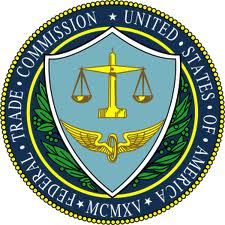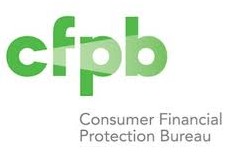On June 25, the Illinois Legislature sent Senate Bill 1624 to Gov. J. B. Pritzker. The legislation adds a requirement to Illinois’ data breach notification law to notify the attorney general in the event of certain data breaches. The bill will become law if not returned by the governor by Aug. 24, 2019. The legislation would amend the Personal Information Protection Act, 815 ILCS 530/10, by requiring that any data collector who must inform more than 500 Illinois residents of a data breach also provide notice to the attorney general describing: the nature of the breach; the number of affected residents;…
Posts published in “Compliance Management”
Texas Enacts Amendments to Data Breach Notification Law; Creates Privacy Protection Advisory Council

On June 14, Texas Gov. Greg Abbott signed into law House Bill 4390 which amends the notification requirements of Texas’ data breach law and creates an advisory council to study data privacy laws generally. The provisions become effective Jan. 1, 2020. Currently, a person conducting business in Texas who “owns or licenses computerized data that includes sensitive data” must disclose the breach to any affected individual “as quickly as possible.” Tex. Bus. & Com. Code § 521.053(b). The amendments will require the disclosure “be made without unreasonable delay and in each case not later than the 60th day after the…
On April 30, Washington Gov. Jay Inslee signed into law Substitute House Bill 1531 which places new requirements on medical debt collectors. The new provisions go into effect July 28, 2019. The new law requires medical debt collectors to inform consumers in the initial written communication of the right to request the original account number, date of last payment and an itemized statement regarding the debt. For hospital debt, the communication must also notify consumers they “may be eligible for charity care from the hospital, together with the contact information for the hospital.” Upon an oral or written request for…
The Texas Legislature has passed House Bill 996 which limits when a debt buyer can initiate legal action or arbitration to collect consumer debt and requires specific notices with respect to out-of-statute debt. Upon approval by Texas Gov. Greg Abbott, the new provisions will become effective Sept. 1, 2019. Definition of a Debt Buyer “Debt buyer” is defined as “a person who purchases or otherwise acquires a consumer debt from a creditor or other subsequent owner of the consumer debt, regardless of whether the person collects the consumer debt, hires a third party to collect the consumer debt, or hires…
The Federal Trade Commission has released a report examining the benefits, potential risks, and legality of the use of big data in business. Big Data: A Tool for Inclusion or Exclusion? Understanding the Issues focuses on how big data is used after it is collected and how that information could result in discrimination against consumers. The primary goal of the report is to provide businesses with important information on the relevant laws to big data analytics, as well as guidelines on how to use big data effectively while remaining compliant and non-discriminatory, according to the FTC. “Big data’s role is…
New York’s Department of Financial Services published regulations on Dec. 3, 2014, which would require debt collectors to make additional disclosures to consumers following initial communications, provide consumers who dispute charged-off debt with certain information, adopt procedures concerning the applicability of statutes of limitations, maintain certain records and provide written confirmation of settlements, among other things. The regulations (available here) are applicable to third-party debt collectors (those who collect debts owed to others) and debt-buyers. On Jan. 15, I’ll be discussing the regulations in a DBA International webinar Working with New York’s Latest Debt Collection Regulations (register here). In the meantime, here is a closer look at the regulations. Who…
The Federal Trade Commission has posted seven steps debt brokers should follow to keep data secure on the Bureau of Consumer Protection’s Business Center Blog. This latest guidance comes after the FTC requested that a federal court order two debt brokers that exposed the personal information of more than 70,000 consumers online to notify the consumers and give them direction on how to protect themselves against fraud and identity theft. According to the FTC, two debt brokers violated the FTC Act when they placed the personal information of the consumers, including bank account and credit card numbers, birth dates, employment information and more, on a…
New Jersey lawyers, who file lawsuits to collect debts, face significant risk of lawsuits themselves from the very persons they sue on behalf of their clients. A June 30 decision by a New Jersey federal district court found a law firm violated the Fair Debt Collection Practices Act (FDCPA) because its attorneys did not spend sufficient time reviewing its pleadings or examining documents. Daniel Bock, Jr. allegedly had broken his promise to pay a debt and his creditor hired a New Jersey law firm to obtain payment. The firm sued to recover the debt and Bock soon after settled, paying…
The Consumer Financial Protection Bureau has ordered RealtySouth, the largest real estate firm in Alabama, to pay a civil monetary penalty of $500,000 for mortgage disclosure violations. The CFPB has charged the company with illegally steering purchasers to use its affiliated company, TitleSouth LLC, for title and closing services. The penalty, along with other injunctive relief, are contained in a consent order under which RealtySouth neither admits nor denies the CFPB’s allegations. The CFPB says the company violated the Real Estate Settlement Procedures Act, when it encouraged its agents and in some cases required them to use TitleSouth in real estate…
Auto lenders are in the cross-hairs of federal regulators. The Consumer Financial Protection Bureau recently announced it is drafting a larger nonbank participant rule for auto lenders. In the meantime, the Federal Trade Commission announced yesterday the filing of a stipulated order imposing a civil monetary penalty and injunctive relief against a subprime auto lender. Big Penalty, Restitution, Restrictions The Federal Trade Commission announced yesterday that Consumer Portfolio Services, Inc. will pay a civil monetary penalty of $5.5 million arising from its servicing and collection of consumer motor vehicle loans. In addition to the monetary penalty, the lender agreed to make certain changes to…
The Consumer Financial Protection Bureau’s May 22 Supervisory Highlights report offers a rare glimpse into the CFPB’s thoughts on its first two years of supervision of nonbank entities, particularly debt buyers and debt collectors. Although the report contains several of the bureau’s standard talking points (data integrity in debts sales, for example) it does reveal new issues that have drawn the regulator’s attention and new guidance on pre-existing areas of concern. Compliance Management Systems It’s hard to believe, but according to the bureau some credit reporting agencies had no compliance management systems in place. Where it found a CMS, there were several instances uncovered where neither…
The Consumer Financial Protection Bureau released a report today outlining its efforts and objectives in regulating, supervising and enforcing against debt collectors. The report is available here. Past CFPB reports have provided guidance on where the bureau might be headed in its regulation, supervision and enforcement efforts. This year’s report is no different. It notes the growth of medical and student loan debt collection. Expect more focus on these sectors right away. In addition the report examines: consumer complaints the CFPB and the Federal Trade Commission have received over the past year their enforcement activities the bureau’s supervision of debt collectors the bureau’s rulemaking,…











